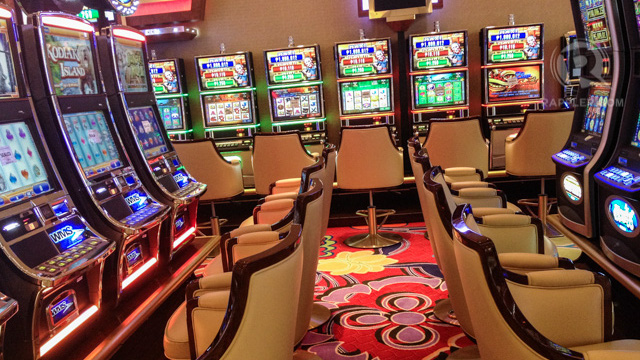SUMMARY
This is AI generated summarization, which may have errors. For context, always refer to the full article.

MANILA, Philippines – The Philippines’ gaming tax rate has been effective in bringing in high-end casino investments into the country.
This is according to officials from two Las Vegas-style casinos involved in the state-run Philippine Gaming Corp’s (Pagcor) $4 billion Entertainment City project.
“The way the government has set up the gaming program here in terms of taxation, we have a much lower gaming tax than, say, Macau. The goal of the government was to give casino operators a pricing advantage in order to give them the ability to market more aggressively,” Brad Stone, the president of Global Gaming Asset Management (GGAM), told reporters in March.
“We can make more margins through lower taxes in order to attract more foreign money into the Philippines,” he added.
GGAM is the management service provider for Solaire Resorts and Casino, the hotel-casino complex of Enrique Razon-led Bloomberry Resorts Corporation.
Solaire, which opened on March 16, is the first of the 4 integrated properties that will operate at the 100-hectare Entertainment City complex.
“There are some other taxes that we are figuring out along the way. It’s quite complex here in the Philippines. Overall, we are encouraged,” added Lawrence Ho, the CEO of Macau casino operator Melco Crown Entertainment.
Last March 15, Melco Crown and Henry Sy’s Belle Corp. signed a deal for the construction of the $1.3 billion Belle Grande hotel-casino.
Philippines vs Macau
Macau, one of the leading markets in the gaming industry in the region, imposes a 40% gaming tax in addition to a 12% corporate tax.
The Philippines, on the other hand, has a mass market tax of 25%.
Mass market refers to non-VIP players on the casino floor. Stone predicts that 70% of Solaire’s business will come from this customer base.
The country also has a lower VIP tax rate of 17% for local players and 15% for foreign players. The rates are comparable to another gaming industry player in the region, Singapore.
The lower tax rates, according to Stone, has given casinos “the ability to market more agressively.”
“That’s the biggest incentive, the financial incentive,” added Solaire COO Michael French.
Luring in VIPs
French added that the lower tax rates will enable high-end casinos to lure more VIPs away from other gaming destinations in the region.
“The government here in the Pilippines has made it attractive for casino operators to bring in high-rollers from Macau by offering a lower tax rate.”
He explained that intermediaries that bring in high rollers called junkets are attracted to the country’s 15% tax rate for foreign VIPs. Junket operators make money from commissions based on the amount of money high rollers gamble. In Macau, their commission is capped at 1.25% because of the 40% gaming tax.
French said that the lower tax rates “allows us more flexibility in giving higher commission to the junket operators so they’ll come here.”
“This is a better, more profitable place for the junket operators to take their customers than Macau,” he said.
The Belle Grande is set to open to open in mid-2014. Other companies scheduled to set up shop in Entertainment City are Kazuo Okada’s Tiger Resorts Leisure and Entertainment and Malaysian company Genting Group, the partner of Andrew Tan-led Alliance Global Group. – Rappler.com
Add a comment
How does this make you feel?
There are no comments yet. Add your comment to start the conversation.